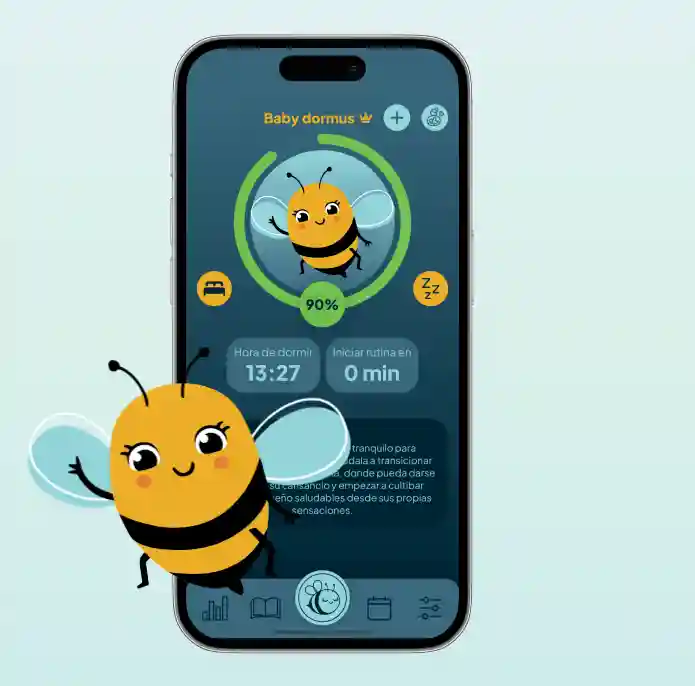9 Powerful Strategies to Be a Priority
How to Make a Man Miss You: Complete Guide
Based on the psychological strategies of expert Alexia Munhoz
Reading progress: 0%
Understanding the Problem: Why Aren't You a Priority?
Have you ever found yourself in a situation where you felt like you weren't a priority for someone important in your life? This feeling is unpleasant and it gets even worse when that someone is very close to you, like a romantic partner.
According to relationship psychotherapist Alexia Munhoz, there are proven methods for making yourself a priority in someone’s life. In this guide, you’ll learn nine powerful psychological strategies that can help you ensure that you’re always at the top of his priority list.
The Psychology Behind Absence and Longing
Before we dive into the strategies, it’s important to understand the psychological principles that underpin them:
Fundamental Psychological Principles
Scarcity Principle
We value more what is rare or difficult to obtain. When its presence becomes scarce, its value increases in the perception of others.
Absence Effect
Strategic emotional or physical distance activates areas of the brain related to desire and appreciation.
Emotional Investment
The more someone emotionally invests in a relationship, the more value they will give it to justify their investment.
Fear of Loss
The fear of losing someone is a stronger motivator than the prospect of gaining something new.
Quiz: Are you being taken for granted?
Answer the questions below to find out if you are being taken for granted in your relationship:
1. How often do you initiate contact with him?
2. When he invites you to something at the last minute, you usually:
3. When you disagree, you:
Result: You are being taken for granted
Your answers indicate that you prioritize the relationship a lot, often to the detriment of your own needs. The strategies in this guide will be particularly important to you.
Result: Intermediate situation
You have moments of independence, but you still give in in important situations. Applying the strategies in this guide will help you better balance the dynamics of your relationship.
Result: You maintain your independence
Congratulations! You’re already practicing many of the recommended behaviors. The strategies in this guide can help you refine your approach and further strengthen your position.
9 Powerful Psychological Strategies
These strategies are based on proven psychological principles and can transform the way you are seen and valued in a relationship.
Strategy 1: Stop Initiating Communication
If you’re always initiating conversations, he’ll get used to your efforts and start to see you as less important. The solution is simple: stop initiating communication and watch the results.
If he really cares about you, he’ll reach out. This may seem counterintuitive, but it’s effective because:
- Create curiosity about what you are doing
- Break the pattern of predictability you have established
- Make him notice your absence
Strategy 2: Avoid Being Always Available
In relationships, quality is more important than quantity. The more available you are, the more likely you are to be taken for granted. This doesn’t mean playing games, but rather putting yourself first.
If you’re consistently flexible and always willing to please, it’s time to start prioritizing your own needs. This sends the message that you have a life beyond him.
Strategy 3: Keep a Little Mystery
People are naturally drawn to the unknown and the enigmatic. The fascination with mystery is captivating and makes people feel more connected to something or someone that exudes curiosity.
Avoid revealing everything about yourself too quickly. Gradually drop hints about your hobbies and life. The goal is to keep him intrigued and eager to learn more about you.
- Answer certain questions vaguely
- Avoid going into details about your entire past.
- Keep some parts of your life private
Strategy 4: Let Him Invest in You
Who is more likely to see you as a priority: someone who has invested time in you or someone who has not invested anything? If you want him to see you as a priority, allow him to invest in you.
This can be done in several ways:
- Let him invest his time in you
- Reject plans you know you can't fulfill
- Show that your time is valuable
- Make him wait for you sometimes
This attitude conveys the message that you are not just anyone and that he needs to work to earn a place in your life.
Strategy 5: Prioritize Your Needs
This doesn’t mean becoming selfish, but make sure you don’t put yourself in a position where you’re not a priority. Don’t put yourself second.
If you know someone doesn't like you enough and won't treat you the way you deserve, why would you want to be around them? Surround yourself with people who see you as important.
Remember if: If you want to be a priority in someone's life, make sure you are a priority in your own life.
Strategy 6: Don't Put Him at the Center of Your Life
People are often attracted to things they cannot easily have. The more someone feels they have to work for something, the more they will value it.
So don’t show desperation for his attention. When you don’t put someone at the center of your life, you create space for him to work to gain your interest and attention.
- Maintain your own hobbies and interests
- Keep cultivating your friendships
- Don't abandon your personal projects for him
- Build a full life regardless of your relationship
Strategy 7: Create in Him the Fear of Losing You
This is one of the most powerful psychological techniques. People are often more motivated by the fear of losing something than by the prospect of gaining it.
To make someone fear losing you, you need to make your presence valuable. To achieve this:
- Start distancing yourself emotionally
- Share your feelings and confidences less
- Spend more time with other people
- Spend less time on him
This will make him feel like he is losing importance and space in your life. This strategy is powerful, but it should be used with caution and in homeopathic doses.
Strategy 8: Create Your Own Happiness
To be a priority in someone's life, it is important to create your own happiness and not depend on them or anyone else to be happy.
While it's great to have someone you can trust and who makes you feel good, depending on that person for your happiness can lead to emotional dependence and disappointment.
Creating your own happiness will not only make you happier in the long run, but it will also make you a more balanced and attractive person in the eyes of others.
Strategy 9: Be Willing to Walk Away
This is an important step, although it can be scary. Showing that you are not afraid to walk away sends the message that you will not accept anything less than you deserve.
You will show that you do not allow anyone to treat you badly. The right person will naturally start to see you as a priority and will make an effort to keep you in their life.
Self-knowledge and self-love are essential in this step. It is important to show that you are not in this person's hands and that you are not afraid to leave if you are not treated with respect.
Expected Results: Timeline
Applying these strategies does not bring instant results. Understanding the expected timeline helps maintain realistic expectations:
First 2 weeks
Adaptation phase. You may feel discomfort when changing your behavior patterns. He may not notice significant changes yet.
2-4 weeks
He will begin to notice the changes. There may be attempts to test whether you will return to your previous patterns. Stay firm.
1-2 months
Period of readjustment in the relationship. He will begin to show greater effort to maintain your attention and interest.
2-3 months
Consolidation of the new balance. If the strategies worked, you will notice a significant change in how he prioritizes the relationship.
Important:
The timeline may vary depending on his personality, the intensity and duration of the relationship, and the consistency with which you apply the strategies. Remember that the goal is not to manipulate, but rather to establish a balanced and healthy relationship.
Common questions
These strategies are most effective in romantic relationships, but many of the principles can be adapted to friendships and even family relationships. The important thing is to adapt the intensity and context to the type of relationship.
There is a difference between manipulation and setting healthy boundaries. These strategies are not about controlling or harming the other person, but rather about creating a balance where you are not devalued. The goal is to value yourself and build a healthier relationship for both of you.
If after applying these strategies consistently for a reasonable period of time, your partner does not show any changes, this may be an indication that the relationship is not meeting your emotional needs. In this case, it is worth considering whether this is the type of relationship you want to maintain in the long term.
It is not recommended to apply all of the strategies simultaneously, as this may seem like too drastic a change and may cause confusion. Start by implementing one or two strategies that seem most relevant to your specific situation and gradually incorporate others as you become comfortable.
Indicators that you're on the right track include: feeling more confident and less anxious in the relationship, noticing that he's more attentive and responsive to your needs, noticing an increase in his efforts to stay in touch and arrange dates, and feeling a greater balance of power in the relationship.
Conclusion: The Power of Self-Esteem
By implementing these strategies, you are not only changing how he sees you, but also how you see yourself. The real power of these techniques is in developing a stronger sense of self-esteem and self-love.
When you value yourself enough to set healthy boundaries and not accept less than you deserve, you will naturally become a priority not just to him, but to all the important people in your life.
Remember: the ultimate goal is not to manipulate or control, but to create balanced, healthy relationships where both partners value each other.
“When you put yourself first in your own life, you teach others how to treat you.” — Alexia Munhoz





